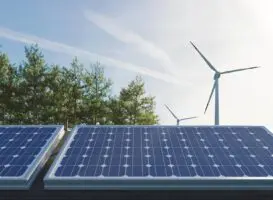Nearly half of the world’s biggest investment funds – including some of Australia’s major asset owners – were failing to protect their portfolios from climate change and associated environmental risk, a new report has found.
The Global Climate Index, released by the Asset Owners Disclosure Project on Monday for the third year running, rates the world’s largest 500 asset owners – pension funds, insurance funds, sovereign funds, foundations and endowments that are collectively worth more $US40 trillion – on how they manage climate risk, with scores ranging from AAA to D.
An “X” ranking*, earned this year by 232 investors, means funds have made no effort at all to recognise or address climate risk.
AODP founder Julian Poulter said on Monday that any investors with a D rating or lower were “laggards” that had failed to take account of an important financial risk.
“The laggard asset owners are driving their funds without climate insurance and one day they will be in a nasty climate [related] market correction,” he said.
Australia, at first glance, looks to be doing well: with two companies in the top 9 – including Local Government Super (LGS), which reclaimed top spot, and Australian Super – it ranks second only to Norway on mean average ratings.

But according to the Climate Institute – which pioneered AODP pilots in Australia and is now the Australian agent of the global AODP – many others local investment funds fared much worse than their international  peers.
peers.
In total, 13 Australian funds received the lowest possible rating, according to the index; among them some of the country’s major investment funds, including the Future Fund, Telstra Super, Asgard, REST and Super SA.
“It’s encouraging to see that Local Government Super Fund and Australian Super are among the nine global funds with a AAA rating in the index,” said Climate Insitute CEO John Connor.
“But overall the index this year paints a disturbing picture of the inadequate management of climate risks to Australians’ retirement nest eggs.”
Former Liberal leader and chair of AODP John Hewson said too many Australian and global asset owners were still risking either accelerating climate change, or being caught out by market changes.
“Currently the ratio of high carbon to low/zero carbon investments across funds is about 20 to 1, that is a 20 to 1 bet on denial or inaction, dwarfing the risks taken before the sub-prime crisis,” he said.
Poulter said the funds that had earned an X-rating were showing “willful negligence, given the number of their peers discussing it at the highest levels.”
This year, the funds to get an X rating included some of the world’s largest sovereign wealth funds, such as Abu Dhabi Investment Authority, the Government Pension Investment Fund of Japan and the China Investment Corporation.
Several large corporate pension schemes also received an X rating, from sectors including energy (ExxonMobil, Duke Energy), banking (Deutsche Bank, Citigroup, HSBC, Lloyds); aviation (Boeing, Delta Air Lines, Rolls-Royce); automotive (Toyota, General Motors, Ford, Daimler); insurance (Legal & General, Old Mutual, Swiss Life) and retail (Tesco, Migros, Walmart).
Local Government Super, meanwhile, which has over $7.5 billion under management, gained its number one ranking due to a consistently strong performance across all five segments of the survey, the report said.
This included the ability to calculate its portfolio-wide emissions, and the widest range of climate change-related portfolio risk mitigation actions of all asset owners.
“Superannuation in Australia is compulsory, and it’s a long-term investment with an average life of 20 years. This makes it crucial that funds take careful action to protect their members’ retirement incomes from climate and carbon risks, which will only worsen in future years,” said Dr Hewson.
“Asset owners need to look beyond COP 2015 in Paris – there is nothing in their fiduciary duty that removes their obligation to hedge against continuing political intransigence on climate action.”
*This story has been corrected from an earlier version, which said the index had a Z ranking. There is no Z rating. The lowest rating is an X.










